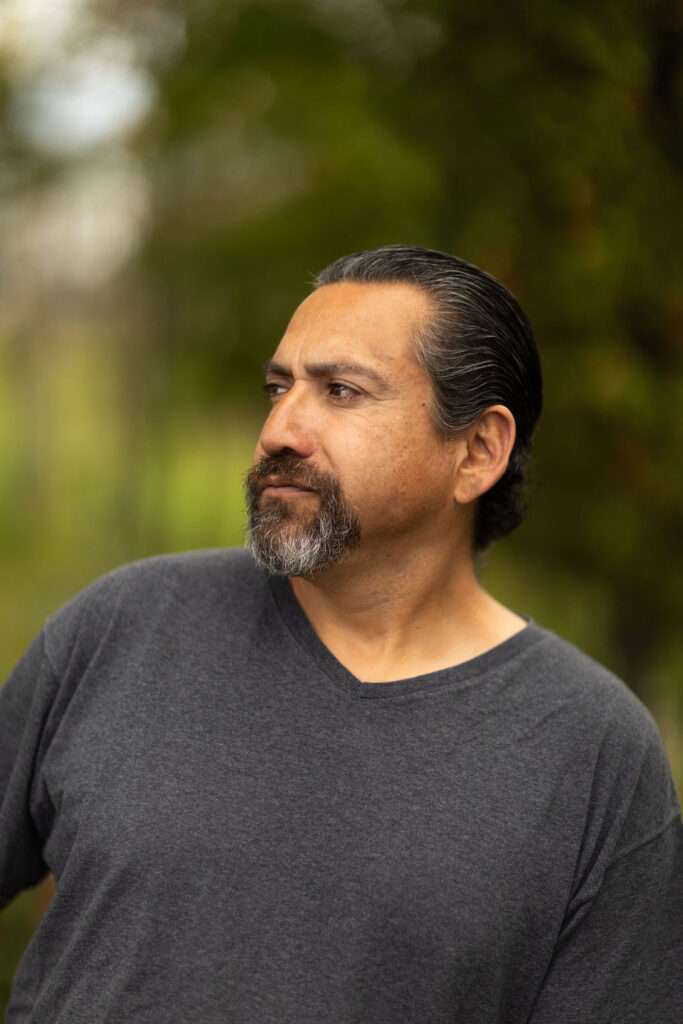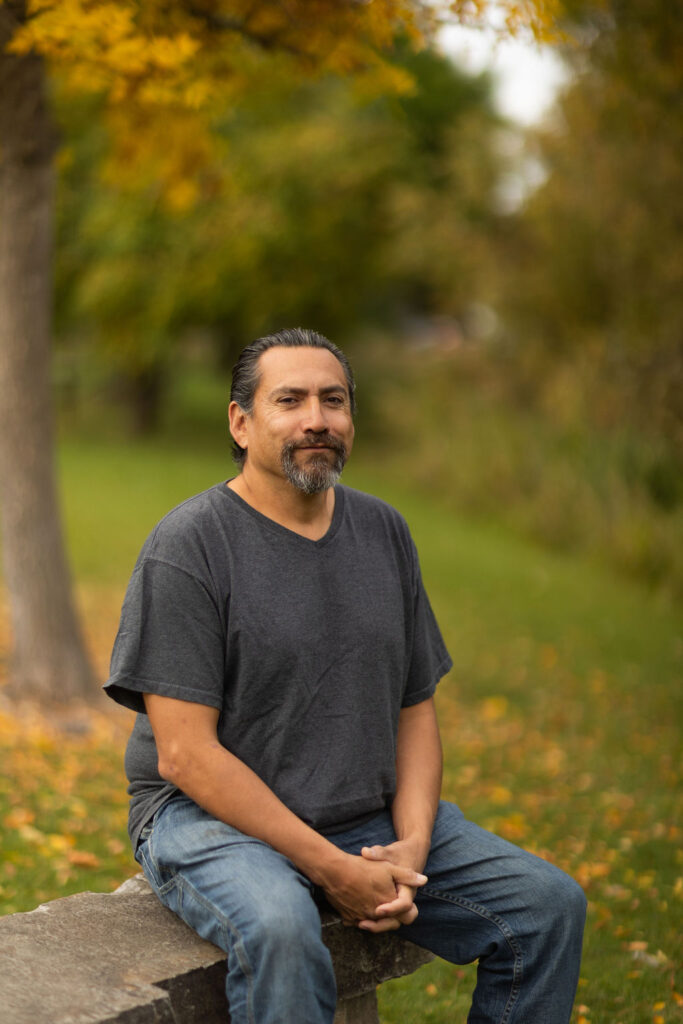For a stretch of time, Trevor, 44, had his life on track. He was living on the Flathead Indian Reservation in Montana and was married with four kids. He had a good job with the power company. There was a lot of stability in his life.
But he was also struggling with alcoholism.
“I’m [an] alcoholic. I come from a family of alcoholics, and it finally caught up with me,” he said.
Over the past five or six years, his marriage got rockier and his drinking got worse. He and his wife went through periods of separation. And he found that without the structure of family life, he had more opportunities to drink.
Eventually, things came to a head in 2021 when he received two offenses for driving while under the influence. The consequences were enormous: he lost his license, his job, and his marriage. He served more than 100 days in jail and attended treatment as part of his sentence.

“I was a high-functioning alcoholic, until I wasn’t anymore,” he said.
The combination of incarceration with the peer support he found in treatment programs lent itself to a period of sobriety. The positive changes stemming from his sobriety were immediately evident. His driving privileges were restored and he found another good job, working for a contractor who builds substations.
His recovery stalled, though, when he had a relapse in 2023. Relapse is a common occurrence during recovery from alcoholism, as it is with any type of addiction. Between 70-90% of people in recovery have at least one lapse out of sobriety, according to Psychology Today.
This time, he woke up in jail with no memory of being arrested. A law enforcement officer had found him passed out in a car in dangerously cold conditions. “I’m just glad I didn’t kill someone or kill myself,” he said.
Alcohol Use Disorder is common in the United States, affecting more than 10% of the adult population, according to the National Institute of Alcohol Abuse and Alcoholism (NIAAA). That number is even higher in Native American and Alaskan Native populations, affecting more than 15% of the population, also according to the NIAAA.
The signs of alcoholism are not always obvious to friends, family, or coworkers, according to the The National Institutes of Health. Like Trevor, some are able to conceal their excessive drinking for years. Many people who become dependent on alcohol struggle to admit that they have a problem. As a result, some people battle alcohol dependence for years before getting help.
But heavy drinking is also correlated with arrests and incarceration. In some criminal cases, the impact of alcohol is indirect – drinking can lower inhibitions and impair judgment. In other cases, such as in driving under the influence, alcohol is a more direct element in the arrest.
People suffering from alcoholism are statistically more likely than people without the disease to be incarcerated at some point in their lives. A 2022 study by Corrections Today found that crime is more closely linked to alcohol abuse than any other drug, and that crime and alcohol have a “synergistic” relationship – meaning alcohol use can contribute to crimes, and crimes can lead to alcohol use. The Bureau of Justice Statistics reports that between 25-33% of people incarcerated in state and federal prisons were drinking at the time of their offense.
Trevor was actually thankful that he was arrested. He believes that being brought in out of the cold may have saved his life. But those first days in jail during his second incarceration were overwhelming as he confronted the consequences of his relapse.
“You get pretty lonely even though you are with other people,” he said. “There is nothing to do. You are missing your family. You try not to go crazy.”
He saw many of the same people in jail that he had seen the last time he was there. They were all struggling with similar issues, and the environment was tense, with people often starting fights with each other out of boredom or stress. “It was depressing,” he said.
But then he heard that The Bail Project was paying his $1,000 bail.
“It felt like somebody was rooting for me,” he said. “After everything that [was] happening, everyone [was] turning their back on me. And I can see why. But with The Bail Project, there was a glimmer of hope that had never happened before.”
Some people argue that bail is the only incentive that will ensure people come back to court for hearings or trial, or even return to serve a jail sentence if one is imposed. But this is a myth. In Trevor’s case, he returned to all of his court dates. Ultimately, he was sentenced to 30 days in jail and willingly returned to serve his time. “This is my home,” he said, referring to the Flathead Reservation. “And I don’t plan on going anywhere.”
At The Bail Project, when we post bail for our clients like Trevor, they return to nearly all of their court dates. People come back, even with none of their own money on the line, because they are motivated by a simple desire to put their case to rest, irrespective of whether it ends in a determination of guilt or innocence.

Now out of jail, Trevor is taking anger management classes, attending Alcoholics Anonymous meetings and participating in other counseling. He’s been living in Morning Star, the first permanent supportive housing facility on Flathead Reservation. It’s helped him remain stably housed despite periods of incarceration and provided him with supportive services to maintain his sobriety.
Trevor has also enrolled in Salish Kootenai College to study the Salish language, a Native American language common in the Pacific Northwest. Trevor enjoyed studying the language in high school and eventually wants to teach Salish. Trevor finds it to be a good incentive to avoid drinking.
“Today, I’m pretty confident,” he said.
Thank you for reading. The Bail Project is a 501(c)(3) nonprofit organization that is only able to provide direct services and sustain systems change work through donations from people like you. If you found value in this article, please consider supporting our work today.












